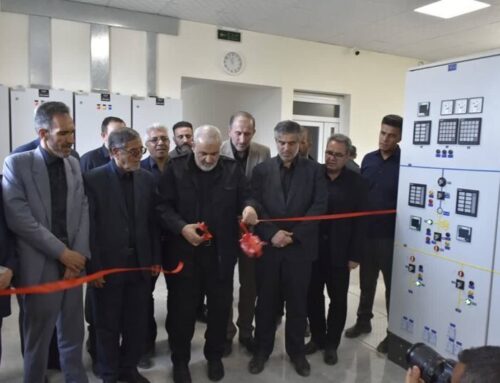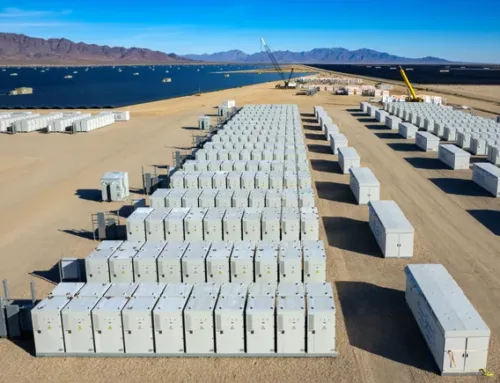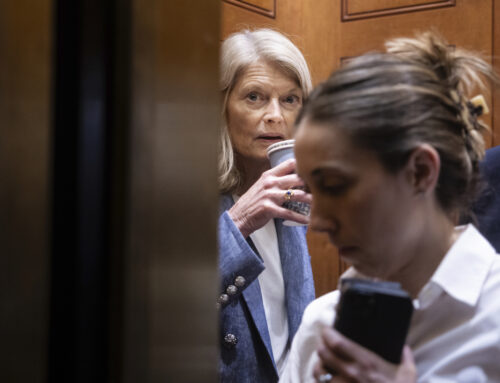California poised to approve most significant environmental law rollbacks in decades
June 30, 2025

A construction worker walks through the Ruby Street apartments construction site in Castro Valley on Feb. 6, 2024. The construction project is funded by the No Place Like Home bond, which passed in 2018 to create affordable housing for homeless residents experiencing mental health issues. Photo by Camille Cohen for CalMatters
Gov. Gavin Newsom, lagging far behind his campaign pledge to build millions more homes, signed Monday evening the most significant rollback in decades to California’s core environmental law that’s long been blamed for construction delays and soaring prices that have increasingly put housing out of reach for the state’s residents.
Assembly Bills 130 and 131 shield a slew of projects — from new apartments to rail stations and advanced manufacturing facilities — from the California Environmental Quality Act, or CEQA, a 1970 state law that requires builders to assess potential environmental impacts from their projects and any measures that could lessen them.
“This is the most consequential housing reform we’ve seen in modern history in California,” Newsom said Monday evening before signing the bills. “These two bills I’m about to sign are transformative.”
The bills made their way through the Legislature with an expectation that Newsom would sign them that evening. CEQA reform was a top priority for the Democratic governor as he seeks to accelerate home building and the state’s overdue and over-budget high-speed rail project.
Critics of housing developments, transit and other projects file an average of 200 lawsuits against state agencies each year via the California Environmental Quality Act.
CEQA requires developments to undergo a lengthy and often expensive review process that critics say is often weaponized to extract concessions from developers. But it’s been staunchly defended by environmental justice advocates as a “critical” protection.
The governor had two top allies in the Bay Area: Assemblymember Buffy Wicks and state Sen. Scott Wiener, two Democrats who led the push for reform.
“None of us thought this would have been possible a couple of months ago,” Wicks, an Oakland Democrat, said. “But I think the winds of change are with us. Our constituents are demanding it.”
“If California is ever going to truly tackle our crisis of affordability, we need to build an abundance of housing, child care centers, water infrastructure, broadband and all the things that we need to make life better and more affordable for people,” Wiener said.
Too often, Wiener said, CEQA is used to derail projects “for reasons having absolutely nothing to do with the environment.”
In an unusual agreement that rankled lawmakers on both sides of the aisle, the governor’s signature on AB 131 was necessary to keep the state’s government functioning for the next year. That’s because Newsom and top Democrats in the Legislature tied CEQA reform to the state’s $321 billion budget for 2025-2026, and one couldn’t pass without the other. The agreement reached last week between Newsom and top lawmakers spelled out that AB 131 “is required for the entire 2025-2026 state budget to take effect.”
That arrangement forced lawmakers to scramble to vet and approve the bills on Monday, irking Democrats and Republicans alike during a packed hearing in the state Senate’s budget committee.
“It certainly stifles discussion and conversation,” said state Sen. Sasha Renée Pérez, a Democrat representing part of the Los Angeles region, during a Monday hearing. “The road to hell is paved with good intentions.”
AB 130 passed the Senate budget review committee 13-1 on Monday afternoon, and AB 131 passed 13-2. Many members chose not to vote, which is a common — and controversial — practice in the Legislature.
AB 131, a version of a bill sponsored by Wiener this spring, would exempt a laundry list of project types from the state’s environmental review process, including farmworker housing, advanced manufacturing facilities for nanotechnology and semiconductors, water projects and the state’s high-speed rail project — another top priority for Newsom, which has been slowed by a slew of CEQA lawsuits.
Wiener, who chairs the senate budget and fiscal review committee, said those projects would still have to abide by local planning and zoning requirements, as well as existing land protections.
Supporters included the Bay Area Council. But environmental groups were not pleased.
“This bill is an unprecedented rollback of California’s fundamental environmental and community protections in CEQA,” said Ashley Overhouse, who represented the nonprofits San Francisco Baykeeper and Defenders of Wildlife at a Monday budget hearing. “It allows for the destruction of hundreds of thousands of acres vulnerable habitat throughout the state,” she said, and will lead to “extensive and irreparable” impacts to wildlife.
The other reform bill, AB 130, carried by Assemblymember Jesse Gabriel of Los Angeles, targets apartment building in urban areas. It would exempt most apartment construction in urban areas from CEQA. That exemption also wouldn’t apply to developments that aren’t consistent with local planning and zoning requirements, or projects on environmentally-sensitive or hazardous sites, according to the most recent analysis of the bill. And developers who take the exemption would still have to assess the site for environmental hazards and mitigate them.
The California Building Industry Association and pro-development groups supported the bill, including California YIMBY. In opposition Monday were a slew of environmental groups, including the Center for Biological Diversity, and several Native American tribes.
RevContent Feed
Search
RECENT PRESS RELEASES
Related Post





